AMD Zen 3 Ryzen Deep Dive Review: 5950X, 5900X, 5800X and 5600X Tested
by Dr. Ian Cutress on November 5, 2020 9:01 AM ESTCPU Tests: Legacy and Web
In order to gather data to compare with older benchmarks, we are still keeping a number of tests under our ‘legacy’ section. This includes all the former major versions of CineBench (R15, R11.5, R10) as well as x264 HD 3.0 and the first very naïve version of 3DPM v2.1. We won’t be transferring the data over from the old testing into Bench, otherwise it would be populated with 200 CPUs with only one data point, so it will fill up as we test more CPUs like the others.
The other section here is our web tests.
Web Tests: Kraken, Octane, and Speedometer
Benchmarking using web tools is always a bit difficult. Browsers change almost daily, and the way the web is used changes even quicker. While there is some scope for advanced computational based benchmarks, most users care about responsiveness, which requires a strong back-end to work quickly to provide on the front-end. The benchmarks we chose for our web tests are essentially industry standards – at least once upon a time.
It should be noted that for each test, the browser is closed and re-opened a new with a fresh cache. We use a fixed Chromium version for our tests with the update capabilities removed to ensure consistency.
Mozilla Kraken 1.1
Kraken is a 2010 benchmark from Mozilla and does a series of JavaScript tests. These tests are a little more involved than previous tests, looking at artificial intelligence, audio manipulation, image manipulation, json parsing, and cryptographic functions. The benchmark starts with an initial download of data for the audio and imaging, and then runs through 10 times giving a timed result.
We loop through the 10-run test four times (so that’s a total of 40 runs), and average the four end-results. The result is given as time to complete the test, and we’re reaching a slow asymptotic limit with regards the highest IPC processors.
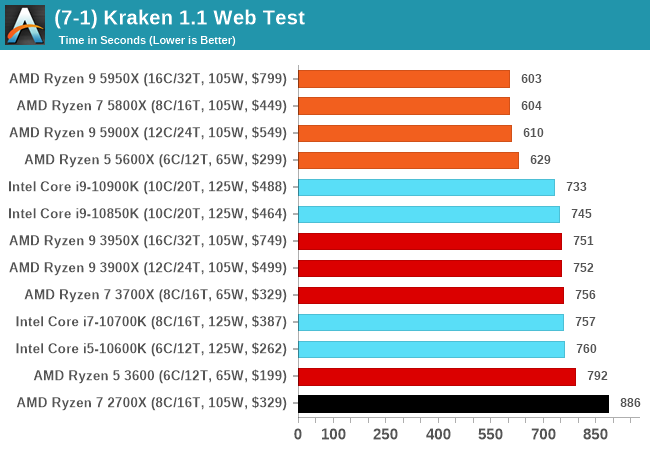
Google Octane 2.0
Our second test is also JavaScript based, but uses a lot more variation of newer JS techniques, such as object-oriented programming, kernel simulation, object creation/destruction, garbage collection, array manipulations, compiler latency and code execution.
Octane was developed after the discontinuation of other tests, with the goal of being more web-like than previous tests. It has been a popular benchmark, making it an obvious target for optimizations in the JavaScript engines. Ultimately it was retired in early 2017 due to this, although it is still widely used as a tool to determine general CPU performance in a number of web tasks.
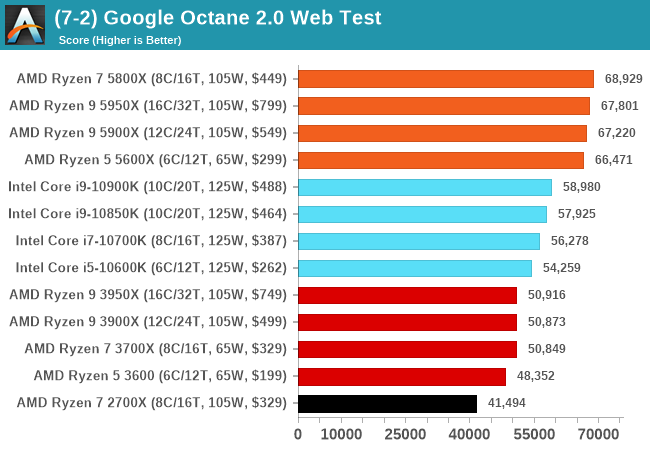
Speedometer 2: JavaScript Frameworks
Our newest web test is Speedometer 2, which is a test over a series of JavaScript frameworks to do three simple things: built a list, enable each item in the list, and remove the list. All the frameworks implement the same visual cues, but obviously apply them from different coding angles.
Our test goes through the list of frameworks, and produces a final score indicative of ‘rpm’, one of the benchmarks internal metrics.
We repeat over the benchmark for a dozen loops, taking the average of the last five.
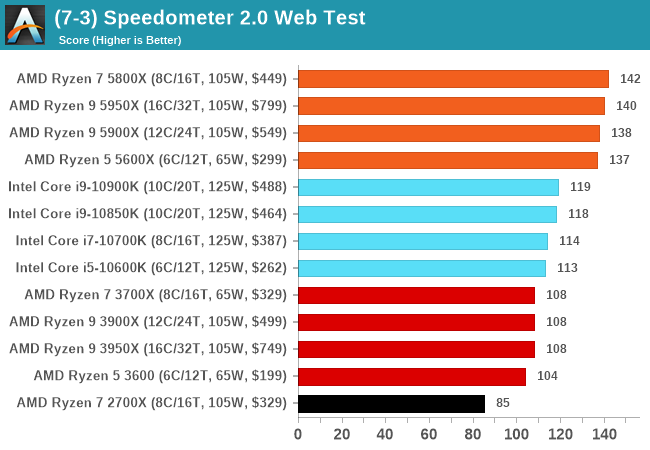
Legacy Tests
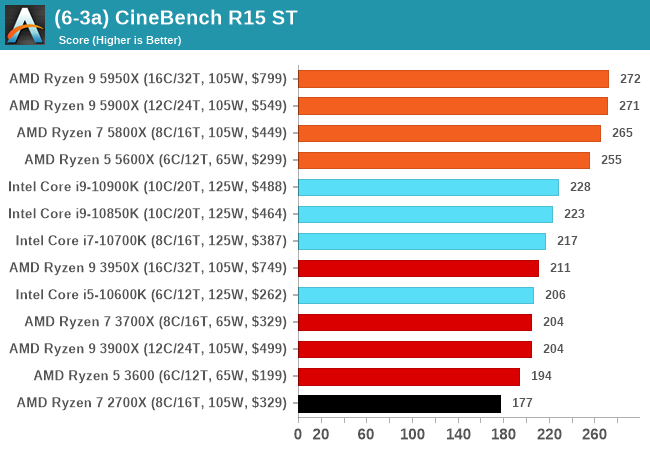
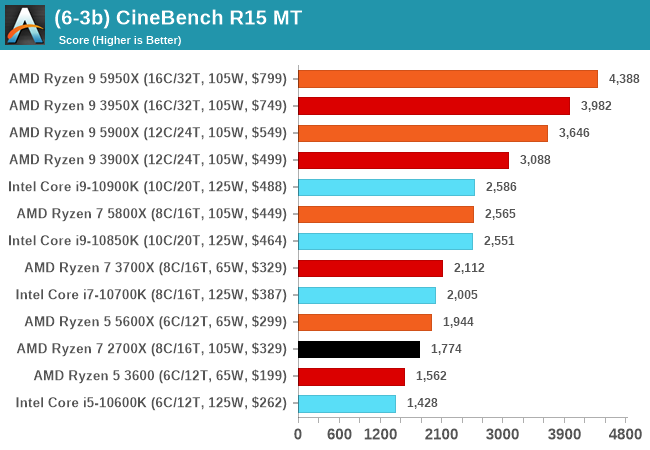
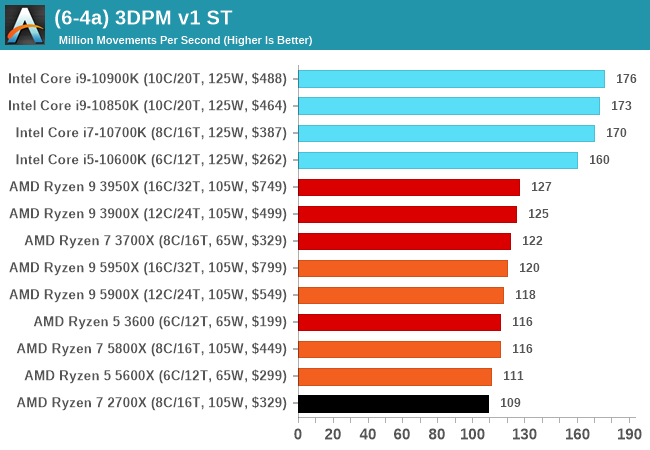
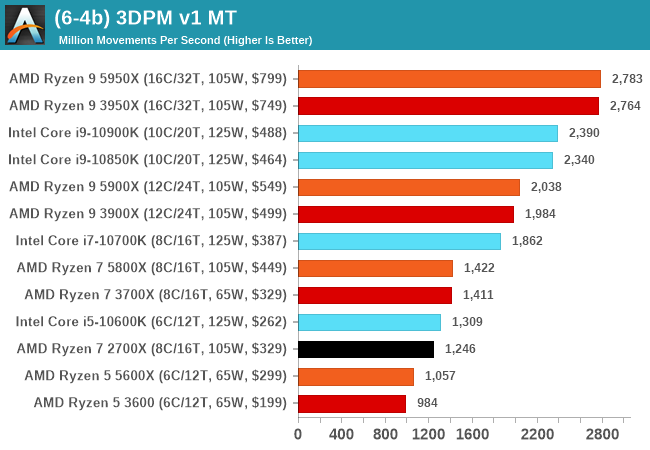


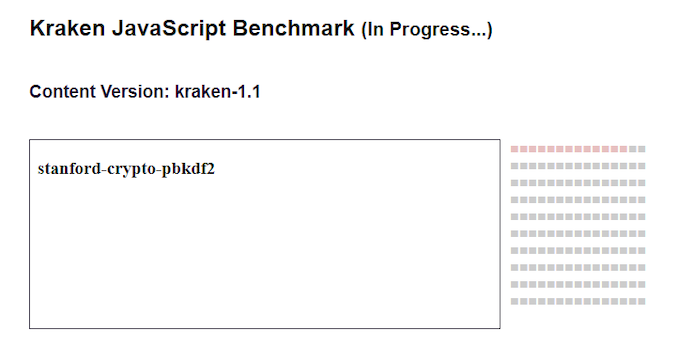
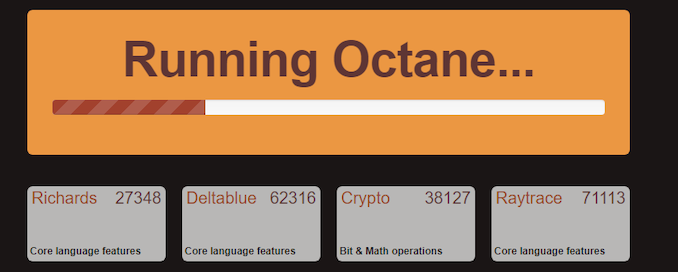
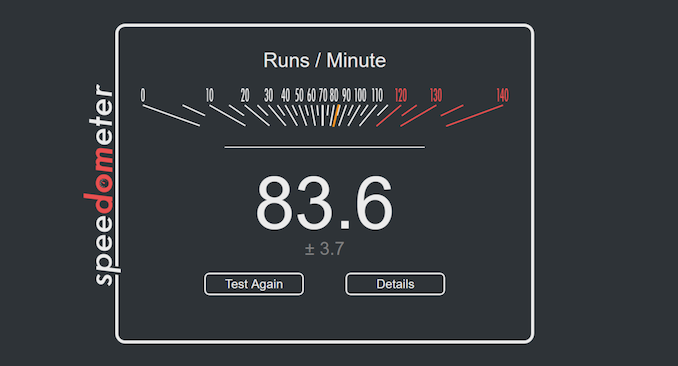








339 Comments
View All Comments
Andrew LB - Sunday, December 13, 2020 - link
5800x @ 3.6-4.7ghz draws 219w and hits 82'c and locked at 4.7ghz its 231w and 88'c.Thats hotter than my i7-10700k @ 5.1ghz all core locked.
https://www.kitguru.net/wp-content/uploads/2020/11...
Thunder 57 - Monday, April 26, 2021 - link
This comment didn't age well...AndyMclamb - Tuesday, September 28, 2021 - link
Rip AMD oner year later Intel destroys AMD with Alder Lakejeremyshaw - Thursday, November 5, 2020 - link
Yes! All I wanted to see was on the Cache and Latency parts - the unified cache allows 6 core and 12 core setups without the penalties of having partial CCXs!JfromImaginstuff - Thursday, November 5, 2020 - link
Wow, just wow,Intel, hang in there you'll get there eventually
PandaBear - Friday, November 6, 2020 - link
In 2023 maybe.Spunjji - Monday, November 9, 2020 - link
It could be as soon as 2022 that they become properly competitive on power and performance, depending on how TSMC 5nm and Zen 4 shake out for AMD.Rocket Lake ought to at least given them presence in mid-range gaming, if you can stomach the power...
5j3rul3 - Thursday, November 5, 2020 - link
No Microsoft Filght Simulator 2020 Test?5j3rul3 - Thursday, November 5, 2020 - link
MFS 2020 is the great to test CPU performance in gamegagegfg - Thursday, November 5, 2020 - link
https://www.anandtech.com/show/16214/amd-zen-3-ryz...